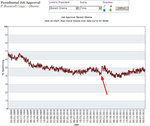Big Ag doesn’t advertise the chemicals it stuffs into animals, so the scientists conducting these studies figured out a clever way to detect them. Bird feathers, like human fingernails, accumulate chemicals and drugs that an animal is exposed to. So scientists from Johns Hopkins University and Arizona State University examined feather meal — a poultry byproduct made of feathers.
One study, just published in a peer-reviewed scientific journal, Environmental Science & Technology, found that feather meal routinely contained a banned class of antibiotics called fluoroquinolones. These antibiotics (such as Cipro), are illegal in poultry production because they can breed antibiotic-resistant “superbugs” that harm humans. Already, antibiotic-resistant infections kill more Americans annually than AIDS, according to the Infectious Diseases Society of America.
The same study also found that one-third of feather-meal samples contained an antihistamine that is the active ingredient of Benadryl. The great majority of feather meal contained acetaminophen, the active ingredient in Tylenol. And feather-meal samples from China contained an antidepressant that is the active ingredient in Prozac.
Poultry-growing literature has recommended Benadryl to reduce anxiety among chickens, apparently because stressed chickens have tougher meat and grow more slowly. Tylenol and Prozac presumably serve the same purpose.
Researchers found that most feather-meal samples contained caffeine. It turns out that chickens are sometimes fed coffee pulp and green tea powder to keep them awake so that they can spend more time eating. (Is that why they need the Benadryl, to calm them down?)
The other peer-reviewed study, reported in a journal called Science of the Total Environment, found arsenic in every sample of feather meal tested. Almost 9 in 10 broiler chickens in the United States had been fed arsenic, according to a 2011 industry estimate.



